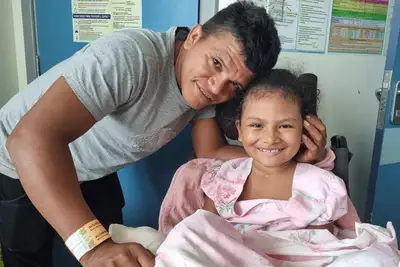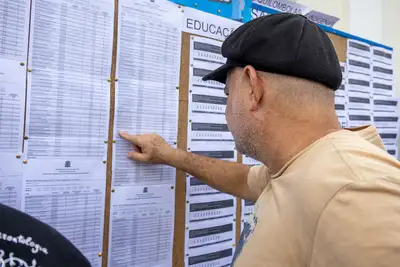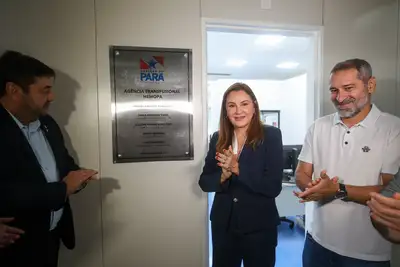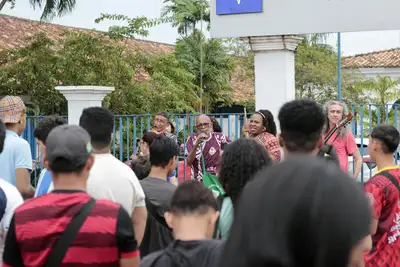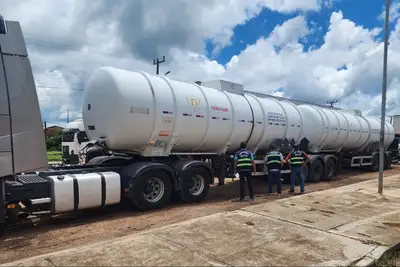Emater encourages farmers in Belém for rural credit
Partnership with Basa foresees over R$ 2 million in investments by the end of 2025
With the support of the local office of the Technical Assistance and Rural Extension Company of the State of Pará (Emater), in Belém, farmer Tereza Cristina Moura, 59, a resident of the Água Branca neighborhood in the Outeiro District, is evaluating the possibility of contracting rural credit to expand and qualify the beds and greenhouses where she grows organic lettuce, green onions, maxixe, and okra at the Roçart site.
"We are suspicious because in this world there is a lot of deception, a lot of abuse, so when an opportunity like this comes along, great, for capital, it makes us apprehensive. The credit interests me because I trust Emater a lot, I know that the work is serious and the priority is really the family farmer. It is reassuring that Emater explains to us what public policy is, allowing us to understand better," she states.
Having been assisted by Emater for over ten years, Tereza shares that one of the main challenges in her journey was gaining recognition as a farmer, even while living in an urban area. "This process, the documentation, all came from Emater: it was difficult to access specific agricultural rights because I couldn't prove the nomenclature, and the practice in the field has been my whole life. Today I have CAF (National Register of Family Agriculture), I have CAR (Rural Environmental Registry of the property), all issued by Emater," she details. The "lifetime work" she refers to includes the cultivation of cocoa, coconut, cassava, manioc, and sapodilla on an area of 1,800 square meters.
Expansion plan - Tereza Cristina is one of the 60 families in Belém that Emater is prospecting for immediate access to rural credit, through lines A of the National Program for Strengthening Family Agriculture (Pronaf) and the Acredita program, with financing via the Bank of the Amazon (Basa).
During the month of May, Emater and Basa are holding technical meetings to update service systems and align goals to implement public financing by the end of the year. Priority will be given to projects aimed at productive arrangements with management of native açaí, cocoa planting, and introduction of forest species, such as andiroba. The total volume of resources expected exceeds R$ 2 million.
"The goal is to enhance and diversify a productive chain that is historical and traditional: production already exists — our collaboration is in the sense of maintenance, expansion, improvement. The monitoring of floodplain açaí considers the preservation of riparian forests and food and nutritional security, for example," explains agronomist Emerson Penha, head of the Emater office in Belém.
Text: Aline Miranda





